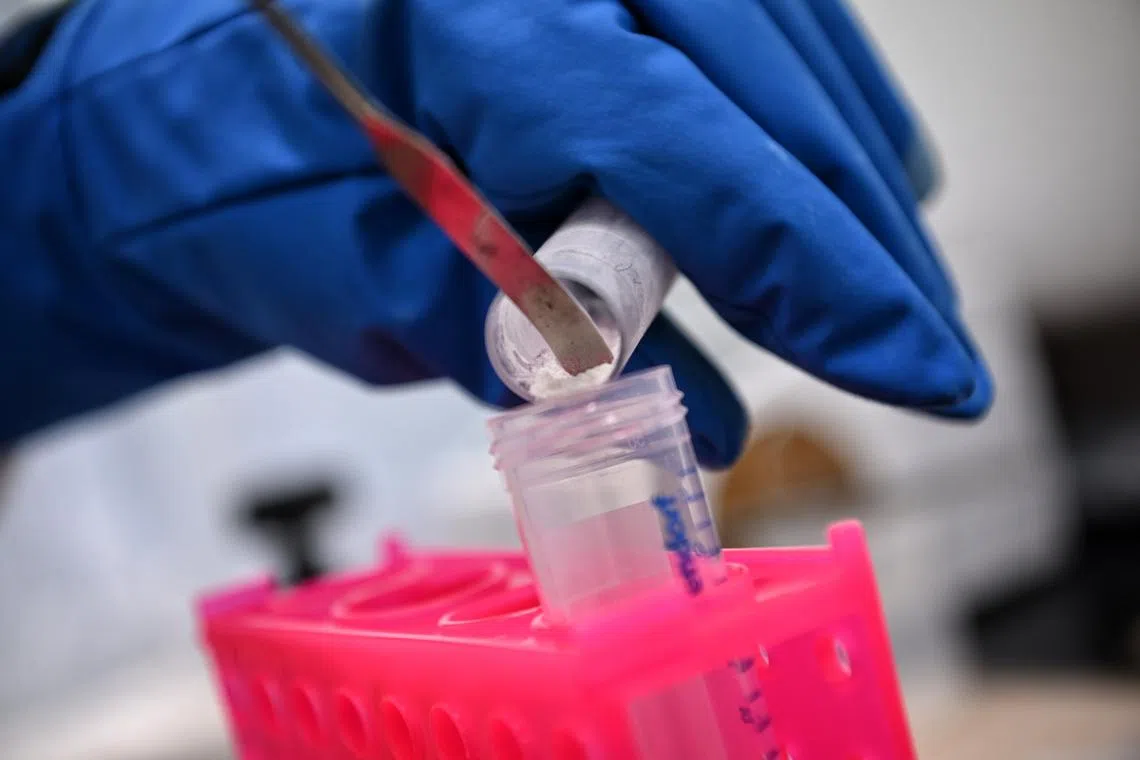Up to 7 years’ jail for sex crime accused who refuse to undergo forensic exam under new framework
Sign up now: Get ST's newsletters delivered to your inbox

Forensic medical examinations have been imperative in helping the authorities solve crimes.
PHOTO: ST FILE
Follow topic:
SINGAPORE – It may soon be an offence if an accused person in a sexual assault case refuses to take part in a forensic medical examination as part of investigations.
Under the Criminal Procedure (Miscellaneous Amendments) Bill introduced in Parliament on Jan 10, such accused individuals who are required to do so but refuse without a reasonable excuse can be jailed for up to seven years, fined or both.
Forensic medical examinations consist of physical medical examinations and collection of samples from any body part, as well as taking of photographs, casts and impressions of body parts, which may include intimate parts.
In a joint statement, the Ministry of Home Affairs and Ministry of Law said such forensic evidence is critical for investigations.
The ministries added that there are no substitutes for specific types of forensic medical examinations, such as penile swabs taken from an accused in a sexual assault case to show proof of contact.
Forensic medical examinations have been imperative in helping the authorities solve crimes, such as the rape of a 27-year-old woman in 2016.
The man broke into the victim’s home, assaulted and raped her before fleeing with her mobile phone.
He was arrested on the same day. And when forensic medical examinations were conducted on him, the victim’s DNA was found on his genitals.
Such examinations can also solve cold cases.
In 2002, a man, then 23, raped a 12-year-old near her home. Swabs were taken from the victim and an unknown DNA sample was found.
The case was solved 12 years later when the accused was arrested in 2014 for theft and a blood sample was taken from him and sent for DNA testing. His DNA profile matched the one retrieved from the girl’s body.
Lawyers told The Straits Times that if the Bill is passed, the legislative framework for conducting forensic medical examinations will be useful in ensuring that perpetrators are brought to justice.
Veteran lawyer Stefanie Yuen-Thio, a joint managing partner at TSMP Law Corporation, said: “I think it is good to give law enforcement the ability, when circumstances justify, to gather evidence that is relevant to solving the case. In fact, it is surprising that they do not have such powers right now, and forensic medical examinations currently need the accused person’s consent.”
She noted that some medical evidence like DNA is time-sensitive and can be degraded.
She added: “It can be washed away by the accused if you give them time to change and have a shower. It is crucial, to bring wrongdoers to justice, that law enforcement can conduct the forensic medical examinations as quickly as possible.”
Criminal lawyer Choo Si Sen of Tan Lee & Partners agreed, noting that the new framework for conducting such examinations may even lead to cold cases getting solved.
In February 2000, Ms Linda Chua, 27, was raped and found in Bukit Batok Nature Park with her clothes next to her. She eventually died from her injuries, and her assailant was never found.
Mr Choo said: “Such unsolved cases may have been considered by the authorities when coming up with this framework.
“If the police were able to retrieve a DNA sample of her rapist then, and the DNA matches one gathered in a later case, maybe the criminal can finally be brought to justice.”
Mrs Yuen-Thio noted that the results of a forensic medical examination can even be exculpatory, and can show that a suspect is not guilty of the crime if there is no DNA match.
If the Bill is passed, such examinations can also be carried out on victims of sexual assault in exceptional cases where informed consent cannot be obtained from them within a reasonable time.
This could be due to the victim’s physical or mental condition after the assault, such as if the person is comatose.
The authorities said such exceptions will apply only if any delay in carrying out the examination may result in the loss, degradation or contamination of evidence needed in investigations.
Mr Choo said that as forensic medical examinations on victims would generally require their consent, it is a good move for the authorities to ensure that those who cannot give consent get justice as well.
Mrs Yuen-Thio said: “If the victims are unconscious and the authorities cannot be sure they will regain consciousness, forensic medical examination can be carried out on them. As timing is often critical, valuable forensic evidence can be lost if the authorities wait too long to perform the forensic medical examinations.”


